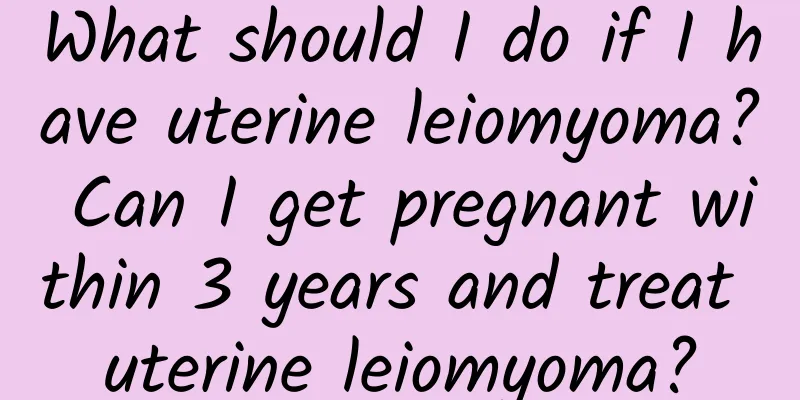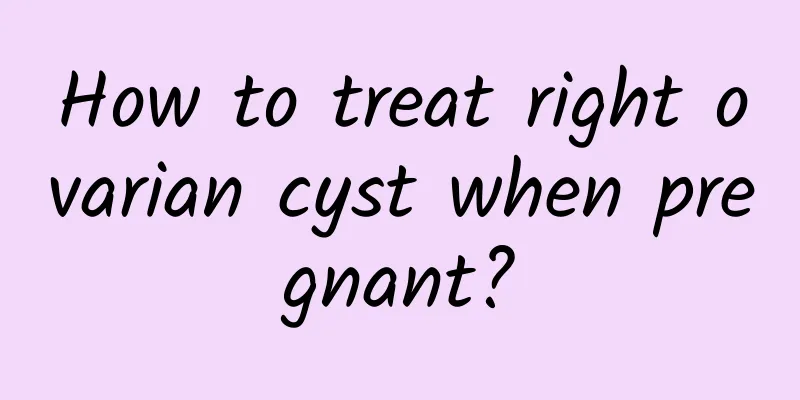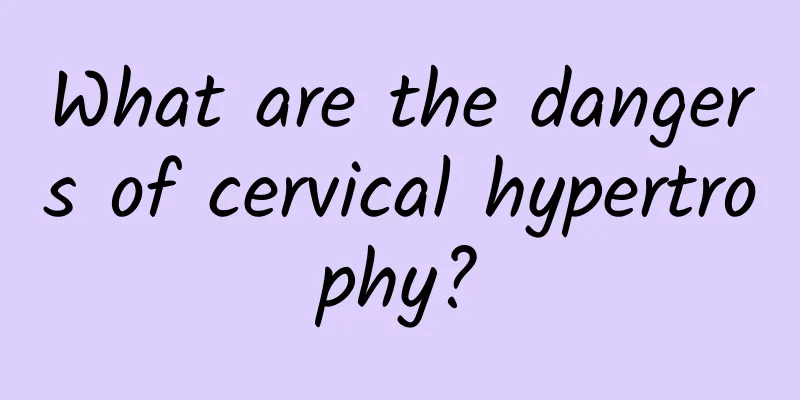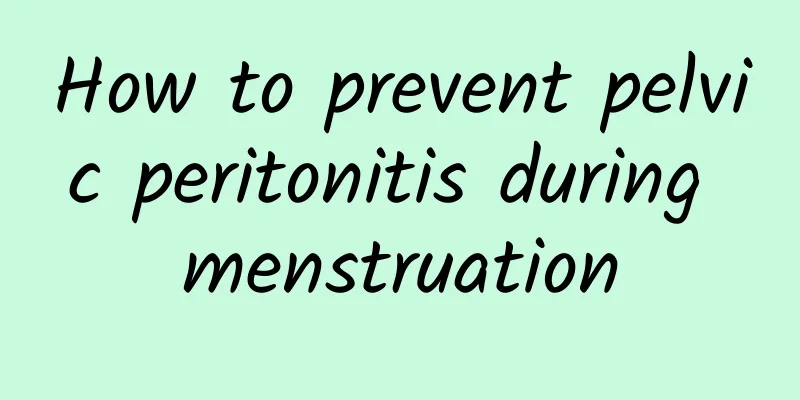What should I do if I have uterine leiomyoma? Can I get pregnant within 3 years and treat uterine leiomyoma?

|
In gynecology, we often encounter patients who get very nervous when they hear that they have a tumor on their uterus, and even think that having uterine leiomyoma means having cancer. In fact, uterine leiomyoma is not terrible. In fact, "the diagnosis and treatment of uterine leiomyoma is not complicated, just like pimples on the face." Patients have two major misunderstandings Uterine leiomyoma refers to the growth of fibroids on the female uterus, also known as uterine leiomyoma, which is the most common benign tumor of the female reproductive organs. Generally speaking, young and middle-aged women of childbearing age are the most susceptible to uterine leiomyoma, usually one in five people will suffer from the disease. "Of course it is common, but few people really understand it." Lang Jingji said: "People often have two misunderstandings about uterine leiomyoma: over-attention and under-attention." "On the one hand, some people were scared to go after they had a physical examination and found that the fibroids were two or three centimeters long by ultrasound. This is completely unnecessary. The diagnosis of uterine leiomyoma is easy, and there are rules to follow for treatment, and even many do not require treatment. Generally speaking, if the doctor diagnoses that the uterus is small, the fibroids are few, there are no special symptoms, and it does not affect normal life and work, the patient will have a regular gynecological examination 1-2 times a year to closely monitor its changes. On the other hand, some people do not pay attention to physical examinations and ignore the body's "alarm signals". For example, once the menstrual cycle is irregular, such as sudden changes in the menstrual cycle, increased bleeding, frequent urination (prostate disease) and other symptoms, they habitually take some Chinese medicine for regulation. In fact, this is likely caused by fibroids, and it is easy to ignore and it is also a big mistake. The treatment principles for uterine leiomyoma should be determined based on the size, location, symptoms, age, fertility requirements, recent progress and complications, and whether the diagnosis is clear. "So, don't worry, but don't give up either. It's best for women over 30 to have a gynecological examination every six months to a year. This is the most important thing." If you have uterine leiomyoma, you should get pregnant within 3 years. If the fibroids have been removed, will they recur? The answer is definitely yes. "I have repeatedly removed more than 200 fibroids from one patient. It should be said that the probability of recurrence is closely related to the number of fibroids." Lang Jinghe made a vivid analogy, like a potato field, the more potatoes the farmer produces, the more potatoes he can find after harvesting, and it is impossible to completely eradicate them. Therefore, the recurrence rate is relatively low for patients with a single fibroid or a small number of fibroids. If the number of fibroids is large, the recurrence rate is relatively high. As for the question of whether many patients with uterine leiomyoma can have children, it is best for patients to get pregnant within 3 years. During this period, the recurrence rate of the disease is low, and the success rate is naturally high. In addition, after surgery, patients usually have anemia, which can usually be cured by taking some iron supplements. Regular follow-up visits are also very beneficial to recovery. Surgery is required in some cases Uterine leiomyoma is not a serious problem, but it can still cause pain to people: if the fibroid grows on the uterine mucosa, it can easily cause menstrual cycle disorders and even anemia; if the fibroid grows on the posterior wall of the uterus, it will compress the rectum and make defecation difficult; if the fibroid grows at the opening of the fallopian tubes on both sides, it will affect the combination of eggs and sperm, leading to infertility or miscarriage. Therefore, you must "follow the doctor's advice" when choosing a treatment plan. "Non-surgical treatment includes participatory therapy and injection of gonadotropin-releasing hormone agonists. Whether or not to have surgery, the doctor must decide based on the patient's age, symptoms, uterine size, number of fibroids, and personal wishes. However, surgery should be performed if the volume of the fibroids exceeds or is equivalent to the size of the uterus at 10 weeks of pregnancy, there are fibroids under the mucosa, and infertility or miscarriage." "The special significance of the uterus to women determines that patients often have many concerns when undergoing surgery. But it is really unnecessary." The current surgical plan can better consider the patient's feelings: remove the fibroids and preserve the uterus, which is suitable for young patients who have not given birth; if the fibroids are too large and too many, the uterus has completed the "historical mission" of childbirth, and you can cut it off. In fact, hysterectomy will not affect the function of the female endocrine system and the harmony of sexual life. This is because even if the uterus is removed and the patient has uterine leiomyoma, the pregnant ovaries are still preserved within 3 years. The uterus is just an implanted growth organ, and the ovaries dominate the female endocrine. |
<<: What are the symptoms of uterine leiomyoma and the treatment of uterine leiomyoma
Recommend
Will menstruation stop if I have ovarian cysts? How can I cure it?
Will menstruation stop if I have ovarian cysts? H...
Can I drink honey water if I have symptoms of threatened abortion?
If you have symptoms of threatened abortion, you ...
What are the symptoms before menstruation?
Common premonitory symptoms before menstruation i...
Can Traditional Chinese Medicine Treat Adenomyosis?
Can Traditional Chinese Medicine Treat Adenomyosi...
Can ovarian cysts cause amenorrhea?
Can ovarian cysts cause amenorrhea? When there ar...
How to prevent adnexitis
Adnexitis is a common gynecological disease. Many...
What medicine is good for adults with influenza?
Adults with influenza can usually take antiviral ...
How to care for endometrial tuberculosis during pregnancy
Although endometrial tuberculosis is divided into...
I rarely have my period, I'm a bit scared, is there any way to change it?
I am a little scared of having very rare periods....
Can Liushen Pills cure fungal vaginitis?
Liushen Pills cannot cure candidal vaginitis, but...
How to prevent premature menopause
Menstruation is a normal physiological manifestat...
What are the symptoms and treatment of pelvic inflammatory disease?
What are the symptoms and treatment of pelvic inf...
Poor metabolism leads to diabetes, here are 7 warning signs you must know! Nutritionist Zheng Shijia reveals: Eat more of these three foods to promote metabolism
Metabolic capacity refers to the energy required ...
What are the specific treatments for vulvar leukoplakia?
What are the specific treatments for vulvar leuko...
12 frequently asked questions about weight loss. If you have the same questions, you may want to take a look.
12 frequently asked questions about weight loss. ...









